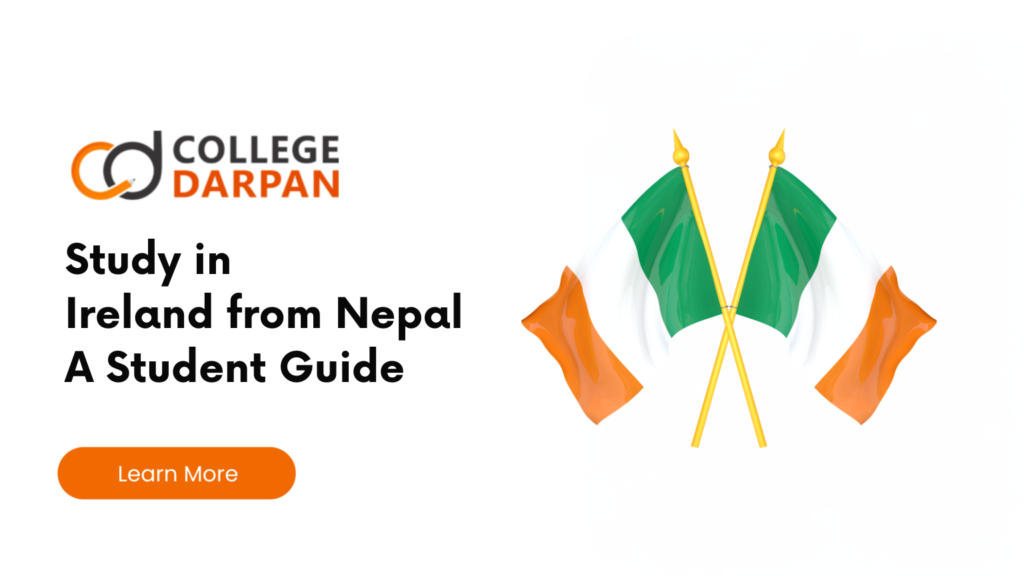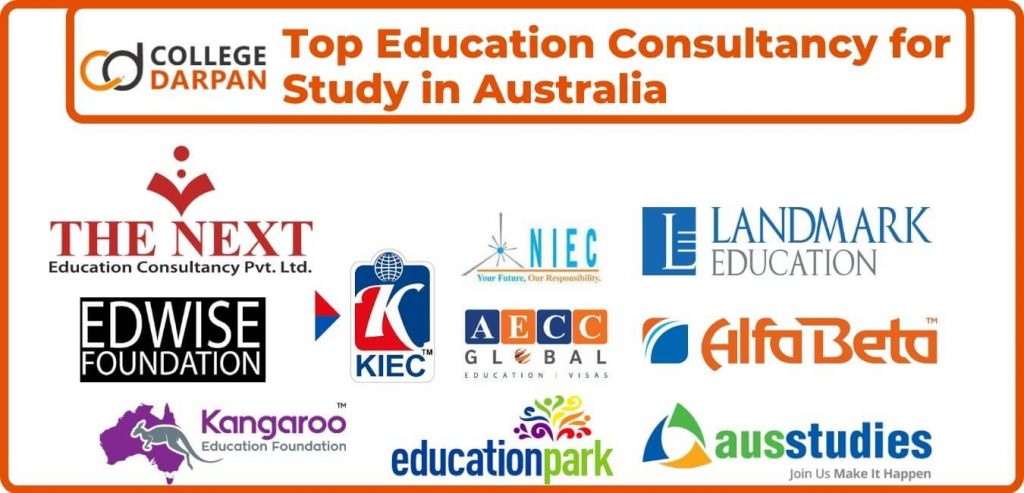Are you a Nepalese student dreaming of studying abroad? Ireland, with its green hills, rich culture, and excellent universities, could be the perfect destination for you. Ireland is known for its advanced technology, welcoming society, and high quality of life, making it an ideal place to pursue your education.
Why Study in Ireland?
Academic Excellence
- Top Universities: Irish universities are highly ranked globally, providing a well-respected education.
- Practical Skills: Irish universities focus on practical skills and real-world applications, preparing you to succeed in your chosen field.
- Wide Range of Programs: You can choose from a variety of programs in different fields, from engineering and computer science to arts and humanities.
- English-Taught Programs: Most programs in Ireland are taught in English, so you won’t face a language barrier.
Benefits Beyond Academics
- Multicultural Environment: Ireland is known for its friendly international student community. You’ll meet people from different backgrounds and make lifelong friends.
- High Quality of Life: Ireland ranks high in happiness, with excellent healthcare, a safe environment, beautiful landscapes, and a good work-life balance.
- Post-Graduation Opportunities: A degree from Ireland is respected worldwide, giving you an edge in the job market. Ireland also offers post-study work visas, allowing you to gain work experience after graduation.
Irish Education System
Primary Education
- Compulsory Education: Starts at age 4-6 and continues until age 15-16, focusing on core subjects.
Secondary Education
- Junior Cycle: For ages 12-15, covering a broad range of subjects.
- Senior Cycle: For ages 15-18, leading to the Leaving Certificate, which is necessary for university admission.
Higher Education
- Universities and Institutes: Offer bachelor’s, master’s, and PhD programs in various fields.
Securing Your Student Visa
Step-by-Step Guide
- Gain Acceptance: Apply and get accepted into an Irish university or Institute of Technology (IT). They will issue a Confirmation of Enrolment (COE) letter.
- Visa Application: Visit the official Irish Immigration Service website for the latest visa application procedures. Submit your application along with the COE, proof of financial support, health insurance, and English language test results (if needed).
- Interview: You may need to attend an interview at the Irish embassy or consulate in Nepal.
Cost Considerations
Tuition Fees
- Public vs. Private Universities: Public universities usually charge lower tuition fees for EU/EEA students. Non-EU/EEA students, including Nepalese students, pay higher fees. Private universities charge fees for all students. Fees vary depending on the program and level of study (undergraduate or postgraduate).
Estimated Annual Tuition Fees
| Level of Study | Average Annual Tuition Fees (EUR) |
|---|---|
| Undergraduate | €10,000 – €30,000 |
| Postgraduate | €15,000 – €35,000 |
Living Expenses
Living costs include accommodation, food, transportation, and course materials. While Ireland can be expensive, there are ways to manage costs, like choosing student housing over private rentals and budgeting carefully.
Average Monthly Living Expenses
| Expense Category | Average Monthly Cost (EUR) |
|---|---|
| Accommodation | €400 – €800 |
| Groceries | €200 – €300 |
| Eating Out | €150 – €250 |
| Public Transportation | €50 – €80 |
| Utilities | €100 – €150 |
| Internet and Mobile | €30 – €50 |
Top Universities in Ireland
- Trinity College Dublin: Excels in humanities, social sciences, law, and medicine.
- University College Dublin (UCD): Known for engineering, science, and business.
- National University of Ireland, Galway (NUIG): Strong in marine science and arts.
- University College Cork (UCC): Focuses on computer science, engineering, and food science.
- Dublin City University (DCU): Known for business, engineering, and IT.
Best Cities to Study in Ireland
- Dublin: The capital offers a lively student life, historical sites, and a cosmopolitan atmosphere.
- Cork: Known for its friendly vibe, arts scene, and natural beauty.
- Galway: Famous for its traditional Irish pubs, music scene, and scenic landscapes.
Popular Courses in Ireland
- Software Engineering & IT
- Business & Management
- Computer Science & Data Analytics
- Engineering (various specializations)
- Biotechnology & Life Sciences
- Marketing & Digital Marketing
- Renewable Energy & Sustainability
- English Literature & Creative Writing
- Tourism & Hospitality Management
- Food Science & Nutrition
Understanding Health Insurance in Ireland
Public Health Insurance
- Coverage: Covers general medical consultations, hospital treatments, and emergency services. Some services may have co-pays, and dental care is not always fully covered.
- Registration: Register with the General Register Office (GRO) to get a Garda National Immigration Service (GNIB) card, allowing you to register for health insurance.
Private Health Insurance
- Additional Coverage: Consider private insurance for broader coverage, including dental care and specialist visits.
Scholarship Opportunities
Scholarships can help reduce the cost of studying abroad. Here are some resources to find scholarships for international students in Ireland:
University Websites
Many Irish universities offer scholarships for international students. Check the websites of the universities you’re interested in.
Government Scholarship Programs
The Irish government offers scholarships for international students. Visit the Department of Foreign Affairs website for more information.
External Scholarship Providers
Many organizations offer scholarships for international study. Look for opportunities related to your field of study.
Working While You Study & Beyond
Part-time Work Permit
International students with a valid student visa can work part-time (up to 20 hours per week) during the semester and full-time during breaks.
Job Market
Ireland has a strong economy with many job opportunities in technology, pharmaceuticals, finance, and tourism. Major cities like Dublin and Cork have more job openings.
Minimum Wage
Ireland’s minimum wage is about €10.50 per hour.
University Support
Many universities offer career services and job placement help. They provide workshops, resume writing guidance, and interview skills training.
Post-study Work Permit
After graduation, you may be eligible for a post-study work permit to gain work experience in Ireland.

